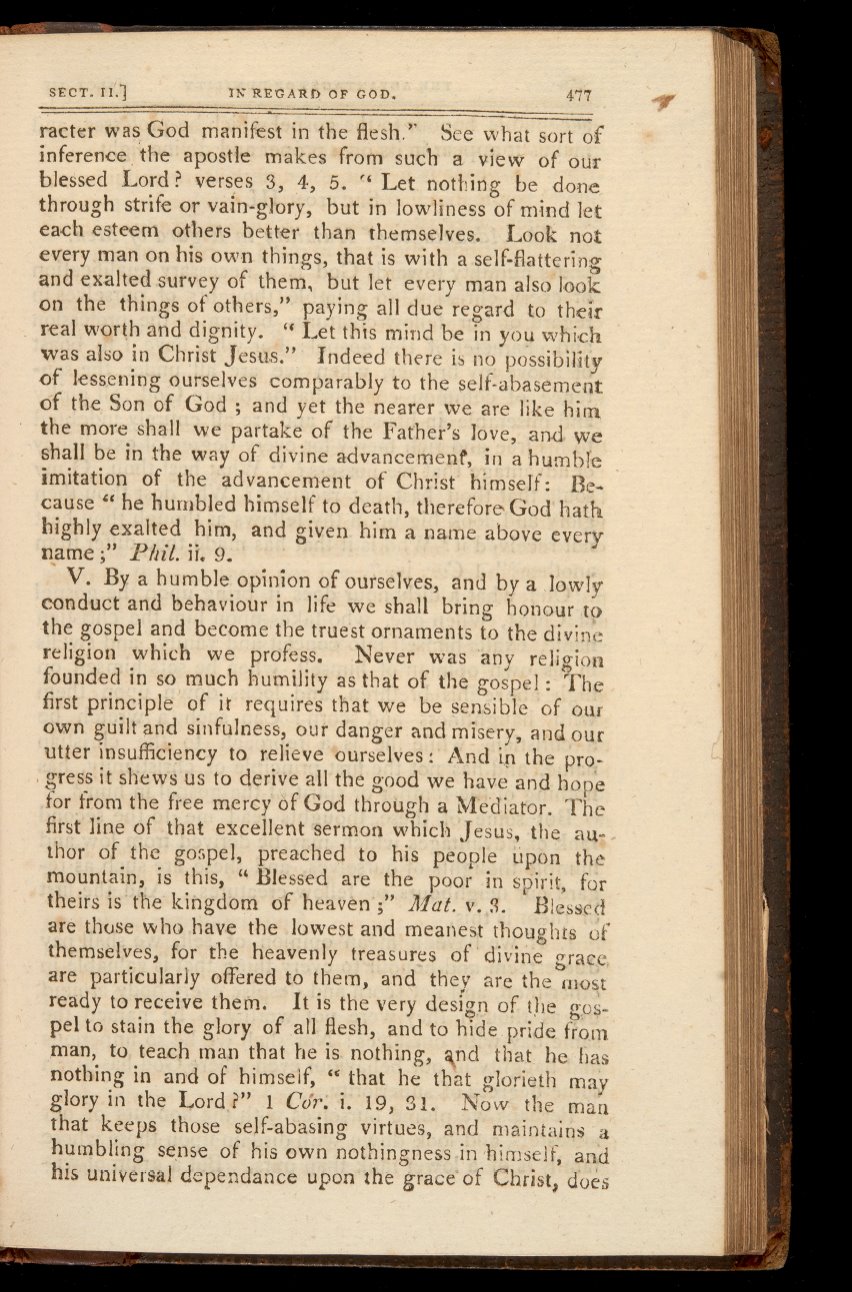

SECT.
II.]
IN REGARE)
OF
GOD.
477
racter
was
God
manifest
in
the
flesh."
See
what
sort
of
inference
the
apostle makes
from
such
a
view of
our
blessed
Lord
?
verses
3,
4,
5.
Let
nothing
be
done
through
strife
or
vain
-
glory,
but
in
lowliness
of
mind let
each esteem others
better
than themselves. Look
not
every man on his
own things,
that
is
with
a
self
-
flattering
and
exalted
survey
of them,
but
let every man also look
on
the things of
others,"
paying
all
due regard
to
their
real
worth and dignity. "
Let
this mind
he
in
you
which
was
also
in
Christ
Jesus."
Indeed
there
is
no
possibility
of
lessening ourselves comparably to the self
-
abasement
of
the
Son
of God
;
and yet the
nearer
we are like hirn
the
more
shall
we
partake
of
the
Father's
love, and
we
shall be
in
the
way
of
divine
advancement,
in
a
humble
imitation
of the
advancement of Christ himself:
Be-.
cause
"
he
humbled himself
to
death, therefore
God hatlr
highly
exalted
him,
and given him
a
name above every
name ;"
Phil.
ii.
9.
V.
By
a
humble opinion of
ourselves, and
by a
lowly
conduct
and
behaviour
in
life
we
shall
bring honour to
the
gospel and become the truest
ornaments
to
the divine
religion which we
profess.
Never
was any religion
founded
in so
much humility
as
that
of
the gospel
:
The
first
principle of
it
requires that we be sensible of
our
own
guilt and sinfulness, our
danger
and misery, and
our
utter
insufficiency to
relieve ourselves
:
And
in
the
pro-
gress
it
shews
us to
derive
all
the good
we have
and hope
for from
the
free
mercy
of God through
a
Mediator.
The
first
line
of
that excellent
sermon which
Jesus,
the
au-
thor
of
the gospel,
preached
to his
people upon the
mountain,
is
this,
"
Blessed are
the poor
in
spirit, for
theirs
is
the
kingdom
of
heaven
;"
Mat.
v.
3.
Blessed
are those
who have the lowest and meanest thoughts
of
themselves,
for
the heavenly treasures
of
divine
grace,
are particularly
offered
to
them, and they
are
the
most
ready
to
receive
them.
It
is
the
very
design
of
the gos-
pel
to
stain
the
glory
of
all flesh,
and
to
hide pride
from
man, to
teach
man
that
he
is
nothing,
and
that
he has
nothing
in
and of himself,
"
that
he
that
glorieth may
glory
in
the
Lord
?"
1
Cór.
i.
19,
31.
Now
the man
that
keeps
those self
-
abasing virtues, and maintains
a
humbling
sense
of
his
own nothingness
in
himself,
and
his universal
dependance
upon the
grace
of Christ,
does

















